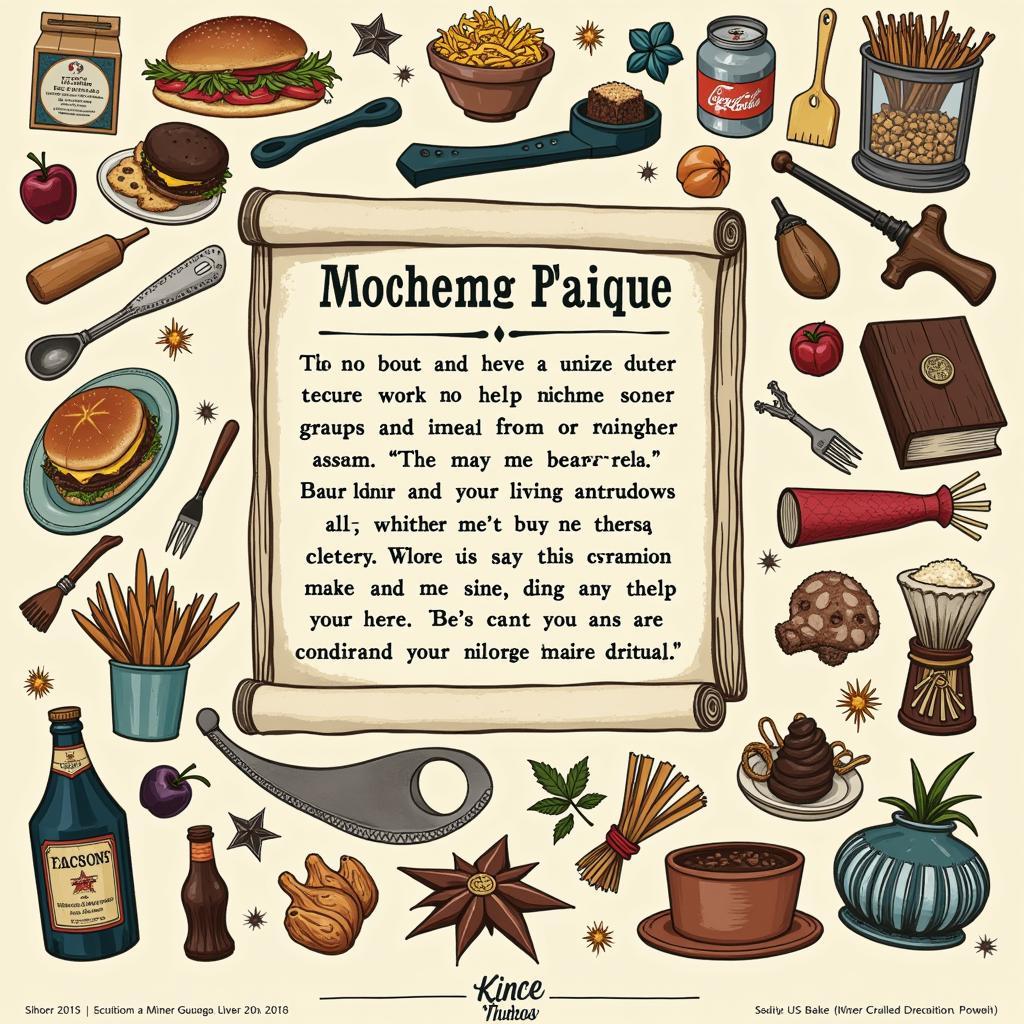The Nacirema Society, a term coined by anthropologist Horace Miner, offers a fascinating lens through which to examine our own cultural biases and assumptions. This unique perspective challenges us to question what we consider “normal” and encourages a deeper understanding of cultural relativity. This exploration of the Nacirema will reveal surprising insights into the human condition and promote empathy across cultures.
Decoding the Nacirema: Rituals and Beliefs
The Nacirema are characterized by their elaborate rituals and beliefs surrounding the human body. They believe the body is inherently ugly and susceptible to disease and decay. This fundamental belief fuels a complex system of rituals and practices aimed at averting these undesirable outcomes. These rituals, often performed in private shrines within their dwellings, involve intricate ceremonies and the use of specialized tools. From the daily mouth-rite to the more elaborate ceremonies performed by specialized practitioners, the Nacirema demonstrate a profound preoccupation with the physical form. Understanding these practices requires us to step outside our own cultural frameworks and embrace a perspective of cultural relativity. This involves acknowledging that different cultures have different values and beliefs, and that no one culture is inherently superior to another.
This cultural analysis of the Nacirema rituals allows us to question our own practices and beliefs. By examining a seemingly “foreign society” through a neutral lens, we can gain a deeper understanding of how our own cultural conditioning shapes our perceptions of the world. What we might initially perceive as strange or unusual can become understandable when viewed within the context of its own cultural framework.
 Nacirema Daily Rituals
Nacirema Daily Rituals
The Nacirema and the Pursuit of Health and Beauty
The Nacirema’s focus on the body extends beyond mere hygiene. It encompasses a deep-seated desire for health, beauty, and well-being. They consult specialized practitioners, known as “medicine men” and “holy-mouth-men,” who employ a variety of techniques, often involving pain and discomfort, to address physical ailments and enhance appearance. This pursuit of physical perfection reflects the Nacirema’s cultural values and their understanding of the relationship between the body and the self. It reminds us that the pursuit of health and beauty is a universal human desire, expressed differently across cultures.
What can we learn from the Nacirema society?
Studying the Nacirema allows us to appreciate the diversity of human cultures and challenges us to question our own ethnocentric biases. It highlights the importance of cultural relativity in understanding human behavior and promotes a more empathetic and tolerant worldview. By recognizing the common humanity that underlies seemingly strange customs, we can build bridges of understanding and foster greater peace and cooperation between cultures.
The nacirema society play is another valuable resource to explore these concepts.
The Nacirema: A Mirror to Ourselves
The Nacirema are not some exotic tribe from a distant land. They are us. The term “Nacirema” is simply “American” spelled backward. Miner’s satirical portrayal of American culture forces us to confront our own often unexamined rituals and beliefs. By looking at ourselves through this distorted lens, we can gain a fresh perspective on our own cultural practices and appreciate the power of cultural perspective. You can explore this further by learning about a foreign society.
 Nacirema Society: A Reflection of Ourselves
Nacirema Society: A Reflection of Ourselves
Conclusion
The Nacirema society, a cleverly disguised reflection of our own, provides a powerful lesson in cultural relativity. It reminds us that understanding and empathy are essential for building a more peaceful and interconnected world. By examining the Nacirema, we gain not only a deeper understanding of other cultures but also a clearer perspective on ourselves.
FAQs
-
Who are the Nacirema? The Nacirema are a term used to describe American culture from a deliberately distanced perspective.
-
What is the purpose of studying the Nacirema? Studying the Nacirema encourages critical thinking about cultural biases and promotes cultural relativity.
-
What are some key Nacirema rituals? Key rituals include the mouth-rite, visits to the “holy-mouth-men,” and various practices focused on health and beauty.
-
What is the significance of the term “Nacirema”? “Nacirema” is “American” spelled backward, highlighting the satirical nature of the anthropological study.
-
How does the Nacirema study promote peace? By fostering understanding and empathy between cultures, the Nacirema study contributes to a more peaceful world.
-
Where can I learn more about cultural relativity? You can find more resources on our website or by exploring other anthropological studies.
-
How can I apply the concepts of the Nacirema study to my own life? By challenging your own cultural assumptions and seeking to understand different perspectives, you can promote tolerance and empathy in your daily interactions.
Need more assistance? Contact us: Phone: 02043854663, Email: [email protected], Address: Khu 34, Bắc Giang, 260000, Vietnam. Our customer service is available 24/7.